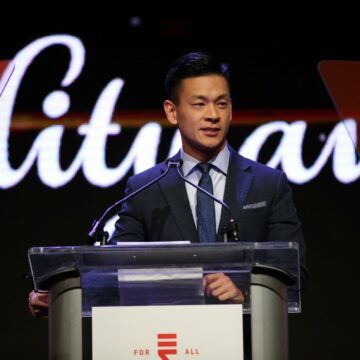Money pouring into a tight Silicon Valley congressional race is drawing attention to a loophole in campaign finance rules that obscures the influence of special interests.
Three political action committees — Equality PAC, Equality California Federal PAC and Voter Protection Project — have spent a combined $221,233 in independent expenses to support Assemblymember Evan Low in the Congressional District 16 race, such as buying advertisements to support his campaign. Low’s July campaign finance filings showed committees also donated a total of $34,500 directly to his campaign, exposing how difficult it can be to define coordination between candidates and the groups that support them.
“The legal definition of coordination and what coordination looks like in practice… I think there’s a big gap between those, without a lot of effort to try to create some kind of standardization, (a) set of rules around what that looks like in practice,” Garrick Percival, chair of the political science department at San Jose State University, told San José Spotlight.
There are multiple types of federal PACs, each with different regulations. For example, super PACs can spend unlimited amounts on independent expenses and cannot coordinate with candidates, including being unable to donate directly to those candidates. Other types of PACs can make direct payments to campaigns and have a limit on how much they can contribute.
Then there are “hybrid PACs,” which can make independent expenditures and donate directly to campaigns, using separate bank accounts to differentiate between expenses. While hybrid PACs are still barred from coordinating with candidates for their independent spending, it becomes more difficult to identify any potential wrongdoing since the PACs interact with candidates through direct donations.
Low is running for Congress against former San Jose Mayor Sam Liccardo, who has only received support from one PAC: Neighbors for Results. It is not a hybrid PAC and has not directly donated to his campaign, but has independently spent on advertisements to support his candidacy.
Sean McMorris, transparency, ethics and accountability program manager for California Common Cause, said this is an example of how difficult it is to prove coordination in the current legal landscape. He said federal regulations are slightly better than the state’s because in California, there is no requirement to use separate bank accounts.
“All we can do right now is make it more transparent,” McMorris told San José Spotlight. “The Supreme Court has absolutely hamstrung how we can regulate money in politics.”
He said New York and Connecticut are good examples of states with transparent regulations, where PACs can either only spend independently or directly donate, which makes the guidelines around coordination clear.
While there are situations that toe the line of coordination, such as when the same person is running both bank accounts or providing strategy for the PAC, on independent expenditures and direct donations, McMorris said those are “dicey” to prove.
Elizabeth Powers, Low’s campaign spokesperson, said the campaign does not coordinate with PACs that spend independently and follows the legal advice of the campaign counsel. She added that Low is proud to be supported by the three hybrid PACs.
“Evan is a champion of voting rights and LGBTQ+ rights, and their support speaks to his leadership on those issues,” Powers told San José Spotlight. “The campaign follows strict procedures to ensure there is no coordination with any independent expenditures. Similarly, contributions to (independent expenditures) do not influence the decisions of the campaign.”
The complicated legal framework around these committees make it difficult for individual voters to follow money in campaigns, Percival said.
He said voters want to know where money in an election comes from, because it can speak to a candidate’s values or priorities should they be elected. Another difficulty is in proving how influential PACs can be, because they might be supporting a candidate to prevent certain legislation.
Our news is for everyone.
That means it needs to be free! We don’t put our news behind a paywall. Your tax-deductible donation is critical to our mission of keeping you informed.
Percival said making campaign finance more transparent would need legislation from Congress, but that would be unlikely to move any time soon. Voters care more about other issues typically, like a candidate’s party and ideology, rather than this type of campaign reform. He said congressmembers have no incentive to change the status quo.
“The Supreme Court has weighed in on this, but there’s just so much space in what is coordination and what is not coordination, that people push the limits of those things to try and maximize their advantage until someone, somewhere… until the courts tell them to stop,” he told San José Spotlight.
Because this race is for an open seat, McMorris said he expects even more money to be involved, which makes tracking contributions all the more vital to transparency.
“There’s always going to be some money in politics but right now, our current campaign finance system is extremely broken, and it benefits the wealthy, the special interests,” he told San José Spotlight.





